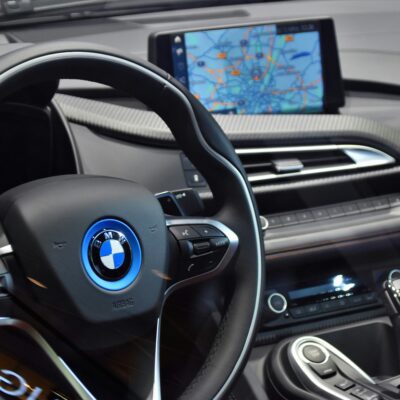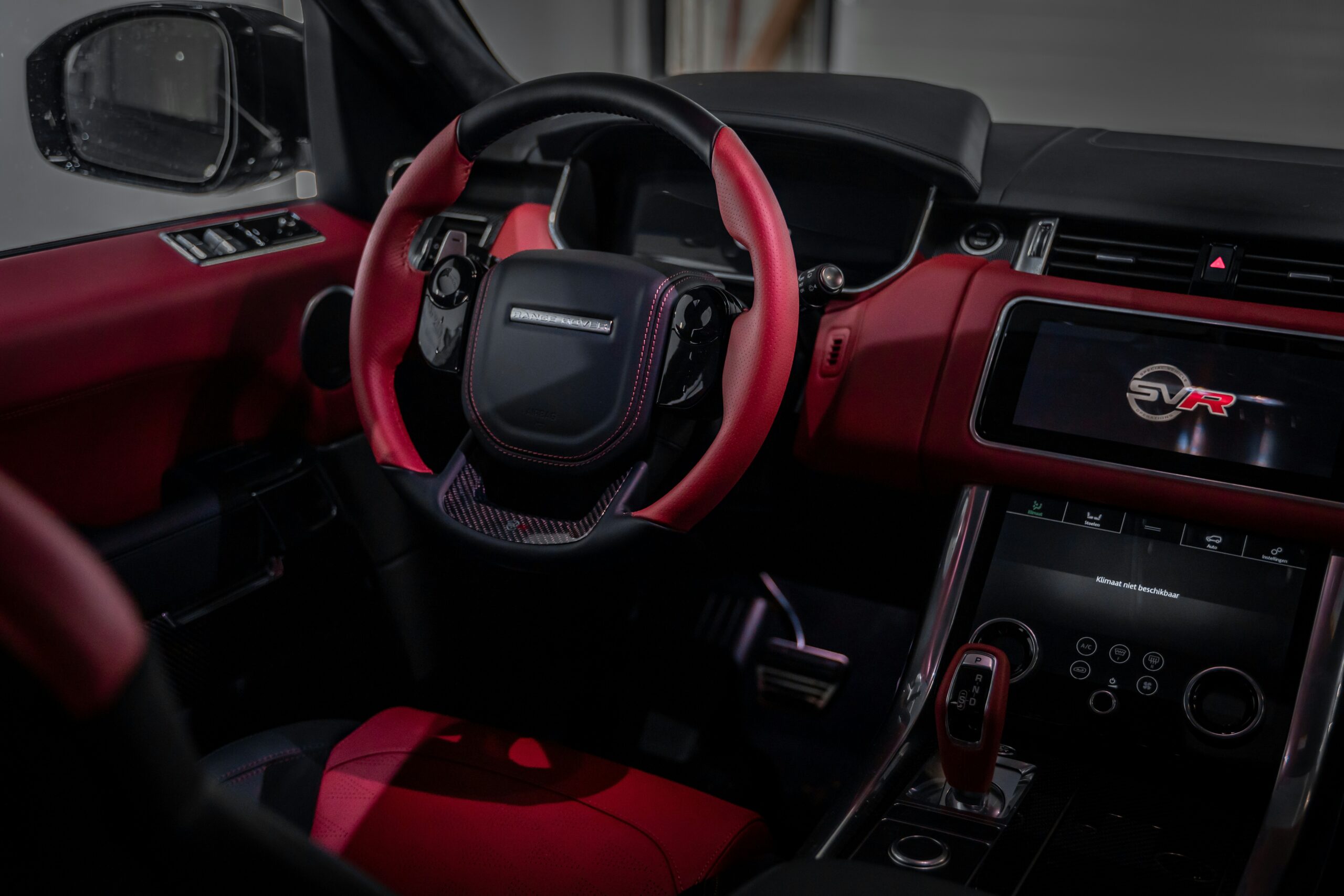Introduction to the evolution of car technology
Buckle up, gearheads and tech enthusiasts! The automotive world is hurtling into the future at breakneck speed, propelled by cutting-edge advancements in car technology. From electric dreams to autonomous realities, the evolution of vehicles is reshaping how we drive, commute, and interact with our cars. Join us on a thrilling ride as we explore the latest trends revolutionizing the automotive industry and peek into what’s next on the horizon.
Top trends in car technology:
Electric and hybrid vehicles have taken the automotive world by storm, offering eco-friendly alternatives to traditional gasoline-powered cars. These vehicles are not only better for the environment but also provide impressive performance and efficiency.
Autonomous driving is another trend that has been rapidly advancing in recent years. From self-parking features to fully autonomous driving capabilities, car manufacturers are pushing boundaries to create a safer and more convenient driving experience.
Connected cars with smart features are becoming increasingly popular among consumers. The integration of technology allows for seamless connectivity, navigation assistance, and entertainment options right at your fingertips while on the road.
Advanced safety systems such as automatic emergency braking, lane-keeping assist, and adaptive cruise control are enhancing driver safety like never before. These technologies work together to prevent accidents and protect both drivers and passengers on the road.
– Electric and hybrid vehicles
Electric and hybrid vehicles have revolutionized the automotive industry, offering a cleaner and more sustainable mode of transportation. With advancements in battery technology, electric cars are becoming increasingly popular among consumers looking to reduce their carbon footprint.
Hybrid vehicles combine traditional combustion engines with electric motors, providing improved fuel efficiency and lower emissions. This dual-power system offers drivers the best of both worlds by combining the advantages of internal combustion engines with the environmental benefits of electric propulsion.
The growing infrastructure for charging stations is making it more convenient for electric vehicle owners to recharge their cars on-the-go. As governments worldwide push for stricter emission regulations, automakers are investing heavily in developing new electric models to meet these standards.
From luxury sedans to compact hatchbacks, there is a wide range of electric and hybrid vehicles available on the market today. These eco-friendly options are not just trendy but also practical choices for environmentally conscious drivers looking towards a greener future.
– Autonomous driving
Imagine a world where cars can drive themselves, revolutionizing the way we commute. Autonomous driving technology is not just a dream of the future; it’s becoming a reality today. With advanced sensors and artificial intelligence, self-driving vehicles are on the rise.
Autonomous cars promise to increase road safety by reducing human errors and distractions. They have the potential to decrease traffic congestion and emissions, making our roads cleaner and more efficient. Imagine being able to relax or work during your daily commute while your car takes care of navigating through traffic.
Despite these exciting advancements, there are still challenges ahead for autonomous driving technology. Issues such as regulatory concerns, ethical dilemmas in decision-making algorithms, and public acceptance need to be addressed before self-driving cars become mainstream.
Autonomous driving is poised to transform the automotive industry in significant ways. As technology continues to evolve rapidly, we can expect even more innovative features that will reshape how we interact with our vehicles on the road.
– Connected cars and smart features
Connected cars and smart features are revolutionizing the driving experience, offering a seamless integration of technology into our daily commutes. With advancements in IoT and AI, vehicles can now communicate with each other and with external systems, enhancing safety and convenience on the road.
Imagine your car being able to anticipate traffic patterns or suggest alternate routes based on real-time data. Connected cars enable remote diagnostics, allowing for proactive maintenance scheduling and optimizing performance. Smart features like voice-activated controls and intuitive interfaces make driving more efficient and enjoyable.
From automatic parking assistance to personalized entertainment options, the possibilities seem endless. As we embrace this era of interconnected mobility, it’s exciting to think about how these technologies will continue to evolve and shape the future of transportation.
– Advanced safety systems
Advanced safety systems in cars have come a long way in recent years, revolutionizing the driving experience and making roads safer for everyone. From collision warning systems to lane departure alerts, these technologies are designed to prevent accidents before they happen.
One of the key advancements in safety technology is automatic emergency braking, which can detect potential collisions and apply the brakes if necessary. This feature has been proven to significantly reduce rear-end crashes and save lives on the road.
Another innovative safety system is adaptive cruise control, which adjusts your car’s speed based on traffic conditions to maintain a safe following distance from other vehicles. This not only reduces driver fatigue but also enhances overall road safety.
Moreover, features like blind-spot monitoring and pedestrian detection further enhance driver awareness and help avoid potential accidents. These advanced safety systems are paving the way for a future where car accidents become increasingly rare occurrences on our roads.
Impact on the automotive industry
The impact of advanced car technology on the automotive industry is profound. With electric and hybrid vehicles gaining popularity, manufacturers are shifting towards sustainable practices to meet consumer demand for eco-friendly options. Autonomous driving technology is revolutionizing the way we perceive transportation, paving the way for safer and more efficient road systems.
Connected cars with smart features are enhancing the overall driving experience, from integrated entertainment systems to real-time traffic updates. Advanced safety systems like collision avoidance and lane departure warnings are reducing accidents and saving lives on the roads.
These technological advancements have not only changed how cars are built but also how they’re marketed and sold. As companies continue to innovate, the automotive industry is poised for further transformation in the coming years.
Advantages and limitations of these technologies
When it comes to the latest trends in car technology, there are numerous advantages and limitations that come with each innovation. Electric and hybrid vehicles offer eco-friendly options with reduced emissions, lower maintenance costs, and instant torque for a smooth driving experience. However, limited charging infrastructure and higher upfront costs remain as challenges.
Autonomous driving provides increased safety on the roads through advanced sensors and algorithms that can react faster than human drivers. Yet, concerns about cybersecurity risks and ethical dilemmas during critical decision-making processes still need to be addressed.
Connected cars bring convenience with features like remote vehicle monitoring, real-time traffic updates, and integrated entertainment systems. On the flip side, privacy issues arise from data collection practices by manufacturers or third parties without explicit consent.
Advanced safety systems such as collision avoidance technologies help prevent accidents by alerting drivers of potential hazards. Nevertheless, over-reliance on these systems may lead to complacency in driver attention while behind the wheel.
As car technology continues to evolve rapidly, it is essential to weigh both the benefits and drawbacks of these advancements carefully for a more informed decision-making process when choosing your next vehicle.
Future predictions and potential advancements
As we look ahead to the future of car technology, it’s clear that innovation will continue to drive exciting advancements in the automotive world. From electric and autonomous vehicles to connected cars with smart features, the possibilities seem endless.
One of the potential advancements we can expect is further integration of artificial intelligence (AI) and machine learning into vehicle systems. This could enhance safety measures, improve navigation systems, and even personalize driving experiences for users.
Moreover, developments in battery technology are likely to lead to increased range for electric vehicles and faster charging times. This would address some of the current limitations associated with EVs and make them a more practical choice for consumers.
Additionally, as 5G networks become more widespread, we can anticipate improved connectivity within cars, enabling faster data transfer speeds and enhanced communication between vehicles on the road. These advancements have the potential to revolutionize how we interact with our vehicles in ways we haven’t even imagined yet.
The role of consumer demand in shaping car technology
Consumer demand plays a significant role in driving innovation within the automotive industry. As consumers seek more eco-friendly options, car manufacturers are investing heavily in electric and hybrid vehicles to meet this growing demand. The desire for convenience and connectivity has led to the development of smart features like advanced infotainment systems and voice-activated controls.
Safety is another key area where consumer preferences have influenced car technology advancements. With an increasing focus on reducing accidents and improving overall safety, automakers are incorporating advanced safety systems such as automatic emergency braking and lane-keeping assist into their vehicles.
Furthermore, consumers’ interest in autonomous driving technology has pushed car manufacturers to accelerate their research and development efforts in this area. The demand for self-driving cars continues to shape the future of transportation as companies strive to create safer and more efficient modes of travel based on consumer needs.
In essence, consumer demand serves as a catalyst for innovation in the automotive world, driving manufacturers to continuously evolve and adapt their technologies to meet the changing preferences of today’s drivers.
Embracing the future of cars
As we look ahead to the future of cars, it’s clear that technology will continue to revolutionize the automotive industry. From electric and hybrid vehicles to autonomous driving capabilities, connected cars with smart features, and advanced safety systems, the possibilities are endless. These innovations not only enhance our driving experience but also pave the way for a safer and more sustainable future on the roads.
Consumer demand plays a pivotal role in shaping car technology trends. As individuals seek more efficient, convenient, and environmentally-friendly options, automakers are driven to push boundaries and introduce cutting-edge solutions that meet these evolving needs.
Embracing the future of cars means embracing change – welcoming new advancements with open arms while keeping an eye on how they can improve our lives behind the wheel. So buckle up and get ready for an exciting journey into a world where innovation knows no bounds – where every drive is smarter, safer, and more exhilarating than ever before. The road ahead is full of possibilities – let’s embrace them together!





